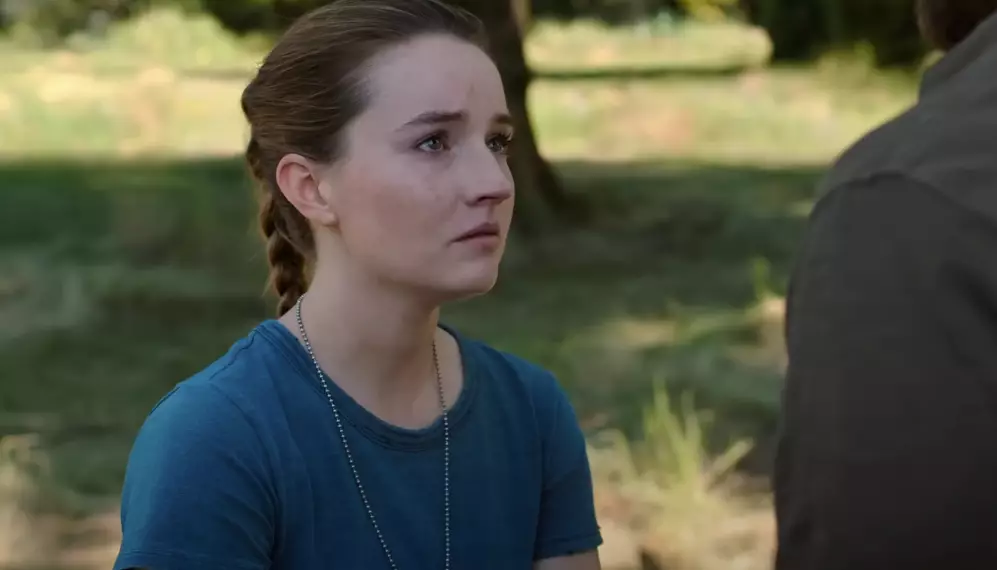At the onset of The Last of Us Season 2, Episode 1, viewers are immediately struck by a compelling narrative turn delivered through the character of Abby, portrayed by Kaitlyn Dever. Her chilling monologue—expressing an insatiable desire for vengeance against Joel for the loss of her father—sets an intense tone that resonates deeply throughout the series. Dever’s portrayal introduces Abby as a figure ensnared in a vendetta, craving not just Joel’s demise but desiring to prolong his suffering. This dark fixation reflects the complexities of grief and the impacts of loss, showcasing her not as a mere antagonist but as a tragically flawed character chasing solace through violence.
Dever’s self-description of Abby as a “chilly ice queen” adds another layer of intrigue to her character. Her obsession with revenge stems not merely from rage, but from profound heartbreak and a desperate attempt to reconstruct her shattered reality. As she grapples with the fragmented pieces of her life, it is apparent that revenge serves as a haunting mechanism for her to navigate through despair. In this light, the portrayal unfolds layers of emotional depth, hinting that Abby’s quest is not just about Joel; it’s also about her own tumultuous journey toward healing from unbearable loss.
The Controversial Legacy of Abby
The character of Abby ignited fierce debates and mixed feelings when she first emerged in the gaming world with The Last of Us: Part II. Many fans grappled with her role, creating a dichotomy between protagonist and antagonist, which only fuels curiosity for her portrayal in the television adaptation. Dever, in her interviews, acknowledges the tumult surrounding the character but remains grounded in her commitment to the role, which she believes is critical for authenticity.
In a marketplace filled with expectation, Dever’s intention to distance herself from online discourse surrounding Abby is both a wise choice and an artistic necessity. The pressures of public opinion can weigh heavily on an actor delivering a layered performance, and Dever’s focus on embodying Abby’s emotional landscape suggests a mature understanding of her craft. By prioritizing the intricacies of Abby’s character over external noise, Dever understands that her performance can elicit a more genuine viewer engagement. The complexity of characters like Abby requires an actor’s commitment to delve into their psyche, beyond the polarized perceptions often constructed by audiences.
Casting Confidence and Character Freedom
Dever’s casting journey bears significance—she was chosen for the role of Abby without an audition, a testament to the trust and vision that showrunners Craig Mazin and Neil Druckmann have in her talent. This trust speaks volumes about their commitment to delivering a nuanced story, recognizing that casting decisions can heavily impact audience perception and character development. Dever’s confidence mirrored the showrunners’ convictions, making for a collaborative environment that champions freedom in storytelling.
This relationship pillars the character’s success. Confidence from creators allows for artistic risk-taking, such as exploring the darker contingencies of Abby’s mindset. The result is a performance that feels liberated and layered rather than constrained by preconceived notions of what a “villainess” should embody. It’s this notion of storytelling freedom that enriches The Last of Us, setting a precedent for characters who are not defined by clear-cut traits or morality.
A Strong Start for Season 2
As Season 2 debuted with a striking 5.3 million viewers on the same day, it indicates that audiences are not just tuning in for fantastic world-building and emotional arcs but are eager to engage with characters that challenge traditional narratives. The increase in viewers from the series premiere resonates with audiences’ craving for compelling, emotionally resonant storytelling.
With each episode airing Sunday nights, the anticipation surrounding Dever’s portrayal of Abby—combined with the show’s willingness to tackle themes of revenge, loss, and humanity—places The Last of Us in a pivotal position within the modern television landscape. The unfolding narrative promises not just thrills but a deep examination of the human condition, compelling viewers to reflect on the lengths one might go to heal from sorrow, even through harrowing paths of revenge.

